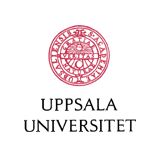|
Causal IIR Audio Precompensator Filters Subject to Quadratic Constraints.
Simon Widmark
IEEE Transactions on Audio, Speech and Language Processing
, vol. 26, No. 10, October 2018, pp. 1897-1912.
© 2018 IEEE (Open Access)
Paper in
Pdf
- Abstract:
-
Infinite impulse response (IIR) Wiener precompensator
design, with constraints on causality, is here extended
to also incorporate general quadratic constraints.
A method
for finding a linear quadratic (LQ) optimal, causal discrete-time
Multiple-input multiple-output (MIMO) filter subject to
a set of user defined constraints is proposed and analysed.
A method for designing causal filters subject to
constraints on the
power gains in a large number of small frequency intervals is
also proposed.
The resulting set of methods provide constrained
stable IIR filters with optimal parametrization. Compared to
finite impulse response (FIR) Wiener filtering, the computational
complexity is much lower and compared to non-causal frequency
domain designs, we gain control of the time-domain properties
of the compensated system.
The design methods are applied to
a room compensation audio problem subject to filter power gain
constraint(s) and are compared to a corresponding non-causal
per-frequency method. The results are presented with audio
filtering and sound field control as main motivating applications
but the methods extend to other areas of linear feed forward
controller design and Wiener filtering.
- Related publications:
-
PhD Thesis 2018 by Simon Widmark.
Paper applying
the presented methodology on
causal MSE-optimal filters for personal
audio subject to constrained contrast.
AES Munich 2012
Acoustical Zone Reproduction for Car Interiors Using a MIMO Framework.
IEEE ACC 2012 on MIMO design
of active noise controllers for car interiors.
IEEE TASLP 2014
on the design and analysis of LQG feedforward
controllers for active noise control.
|
Reseach on audio signal processing
|
Main
entry in list of publications
|
This material is posted here with permission of the IEEE.
Such permission of the IEEE does not in any
way imply IEEE endorsement of any of Uppsala University's
products or services.
Internal or personal use of this material is permitted.
However, permission to reprint/republish this material for
advertising or promotional purposes or for creating new collective
works for resale or redistribution must be obtained
from the IEEE by writing to pubs-permissions@ieee.org.
By choosing to view this document, you agree to all
provisions of the copyright laws protecting it.
|

